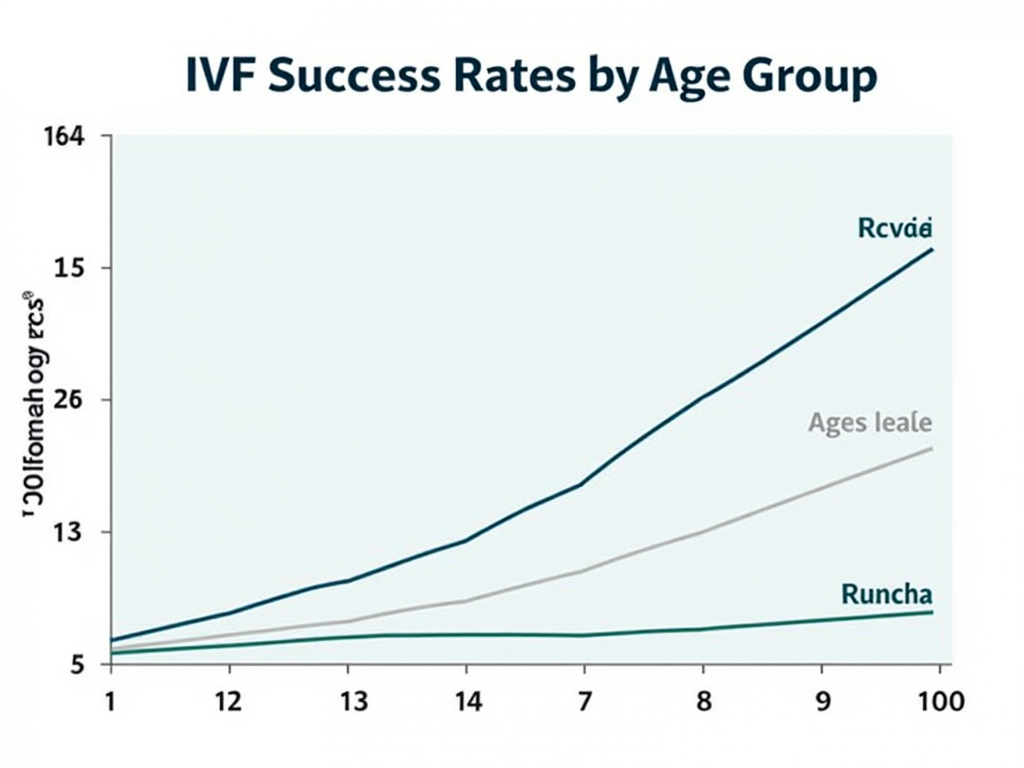Understanding IVF Success Rates: A Comprehensive Guide
May 10, 2025, 7:22 a.m.
Understanding IVF success rates is crucial for anyone considering this fertility treatment. This article provides a comprehensive look at what influences these rates, helping you make informed decisions on your fertility journey.

When it comes to in vitro fertilization (IVF), success rates are a critical factor for many prospective parents. But what do these rates really mean, and how can you interpret them to make the best decisions for your situation?
What Are IVF Success Rates?
IVF success rates typically refer to the percentage of IVF cycles that result in a live birth. However, it's important to note that success can be measured in different ways, such as pregnancy rates or implantation rates. For the purpose of this article, we'll focus on live birth rates, as this is often the most meaningful outcome for patients.
Factors Influencing IVF Success Rates
Several factors can influence IVF success rates, including:
-
Age: A woman's age is one of the most significant factors. Younger women generally have higher success rates because egg quality and quantity decline with age.
-
Cause of Infertility: The underlying cause of infertility can affect success rates. For example, issues like blocked fallopian tubes might have different success rates compared to male factor infertility.
-
Lifestyle Factors: Smoking, obesity, and other lifestyle choices can impact IVF success.
-
Clinic and Doctor: The experience and expertise of the fertility clinic and the fertility doctor specializing in IVF can also play a role.

Interpreting Success Rates
When looking at success rates, it's essential to understand what they represent. Clinics often report their success rates, but these can be misleading if not interpreted correctly. Here are some tips:
-
Look at Live Birth Rates: As mentioned, live birth rates are more indicative of success than pregnancy rates.
-
Consider Age Groups: Success rates vary significantly by age, so make sure to look at rates for your specific age group.
-
Check the Number of Cycles: A clinic's success rate might look high, but if it's based on a small number of cycles, it might not be as reliable.
For detailed statistics on IVF success rates, you can refer to the CDC ART Report, which provides comprehensive data on Assisted Reproductive Technology in the United States.
Choosing a Fertility Clinic and Doctor
Selecting the right fertility clinic and fertility doctor is crucial. Here are some factors to consider:
-
Experience and Specialization: Look for a fertility doctor specializing in IVF with extensive experience.
-
Success Rates: While important, don't rely solely on success rates. Consider other factors like patient reviews and clinic reputation.
-
Personalized Care: Ensure the clinic provides personalized treatment plans tailored to your specific needs.

When choosing a clinic, you might find the guidelines from the HFEA - Human Fertilisation and Embryology Authority helpful, as they provide information on what to look for in a fertility clinic.
Personal Insights
As someone who has gone through the IVF process, I can attest to the emotional and physical toll it can take. It's not just about the numbers; it's about finding a supportive team that understands your journey. When I was choosing a clinic, I looked beyond the success rates and focused on finding a doctor who listened to my concerns and provided a clear plan.

Actionable Insights
If you're considering IVF, here are some steps you can take:
-
Research Clinics: Look for clinics with good reputations and experienced doctors.
-
Ask Questions: Don't be afraid to ask about success rates, treatment plans, and costs.
-
Consider Second Opinions: If you're unsure, seek a second opinion from another fertility specialist.
-
Take Care of Yourself: Maintain a healthy lifestyle to improve your chances of success.
For more information on reproductive medicine and IVF, you can visit the ASRM - American Society for Reproductive Medicine website, which offers a wealth of resources and guidelines.
Summary
Understanding IVF success rates is about more than just numbers. It's about knowing what factors influence these rates and how to interpret them in the context of your own situation. By choosing the right fertility clinic and doctor, and taking care of your physical and emotional health, you can improve your chances of a successful IVF journey.
